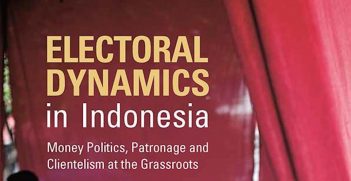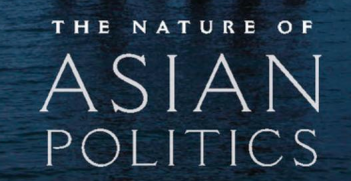Winning the Peace: Australia's Campaign to Change the Asia-Pacific

It is taken for granted, in nearly every contemporary account of Australian foreign policy, that Australia is regarded – by allies and contenders alike – as an established middle power. However, what is precisely meant by ‘middle power’ in mainstream International Relations (IR) remains opaque. Nonetheless, in Australia, the term has been bandied about from the time of Dr Evatt and it is now the orthodox foundation of the country’s foreign policy. The tired old slogan that Australia punches above its weight in foreign affairs is deployed with a sense of self-congratulatory hubris bordering on jingoism.
Andrew Carr is by no means a slave to this convention. In this valuable book, he positions himself in the vanguard of a revival of scholarly curiosity about the meaning of Australia’s self-styled middle power-imagining. It also places him in a time-honoured tradition of thinking about powers that are neither great nor small and the mediating and conciliating roles that they can play in international forums. The ancient Chinese sage Mencius was one of the earliest exponents of this approach, arguing that medium-sized states nurture the best conditions for the innate goodness of humanity to flourish. In Europe, the idea of middle-sized states exercising moral leadership in regional affairs was elaborated first by the fourteenth century constitutional scholar Bartolus de Saxaferrato and subsequently by the priest-diplomat Giovanni Botero, both prominent pre-modern Italian intellectuals. Modern IR theory’s blinkered statist (aka realist) obsessions with great powers suffocated this very promising theme, pushing it beyond the pale of mainstream IR scholarship. Only now, as the world struggles to rise from the ashes of the Cold War and as it variously attempts to deal with a multi-polar global (dis)order, are potential roles for middle powers being brought in from the theoretical cold.
In the second chapter of Winning the Peace, Carr sets out a useful account of how middle powers have been theoretically conceptualised. He highlights what he terms a ‘systemic impact approach as his preferred way of defining middle powers. By this he means: (i) powers that have a defence capacity at least sufficient to ‘raise the costs for any great power aggressor’ and (ii) that are able to wield not insignificant degrees of influence in regional and global forums. He then turns to an analysis of Australia’s claims to middle power gravitas in the Asia-Pacific. He focuses on what he sees as attempts by Australia to advance norms relating to an international rules-based post-Cold War order, arguing that there is ‘a history of entrepreneurial and innovative policy development [that] is a consistent theme in Australian foreign and defence policy’.
Carr presents three case studies in recent Australian foreign policy making in the Asia-Pacific to test this hypothesis: irregular migration, weapons of mass destruction and trade liberalisation. He notes that the Howard Government won the cooperation of 19 Asia-Pacific countries ‘to criminalise people- smuggling and effectively end the flow of people-smuggling vessel to Australia. He shows that over some 30 years, Australian governments have ‘consistently maintained support for the slow, hard work of promoting appropriate behaviour around the non-proliferation of WMD as a norm of the region’. And he argues that from 1983-2013 Australia was a strong and effective advocate of trade liberalisation in the Asia-Pacific. In short, in each case Australia appears adept at the mediating and conciliating roles of a successful middle power.
However, before complacency sets in, Carr warns that Australia’s most recent diplomacy in the region has been ‘rather less glittering’. In his concluding chapter, he calls for greater engagement in the Asia-Pacific. Australia must not ‘overlook its region’; rather, he states, it must ‘work through its region’. This is excellent advice and we may look forward to another book by Carr showing how this may be achieved. There are two immediate problems he will need to surmount. First, how can Australia develop an ‘Asia- literate’ workforce to properly engage with Asia? Second, will this require rethinking the ANZUS alliance in order for Australia to rely less upon its relationship with the United States in order to enmesh with Asia? As a dependent middle power, Australia’s American ties remain seriously problematic for its Asian foreign policy-making.
Andrew Carr’s book is an eloquent and stimulating account of Australia’s middle power pretentions. It should be appearing on foreign policy reading lists in academe, business and for politicians and bureaucrats working on the country’s foreign and defence policy.
Andrew Carr (2015), Winning the Peace: Australia’s Campaign to Change the Asia-Pacific (Melbourne: MUP/Academic), pp.i-336.
Allan Patience is a Principal Fellow in the Asia Institute, University of Melbourne. This article can be republished with attribution under a Creative Commons Licence.





